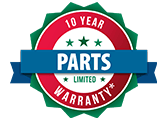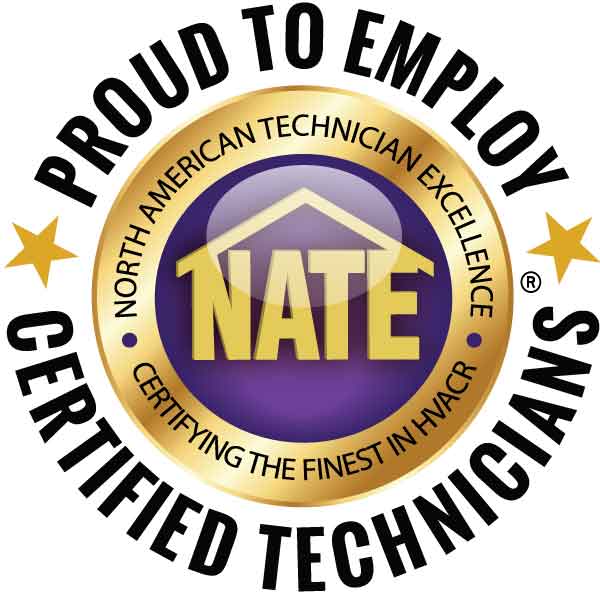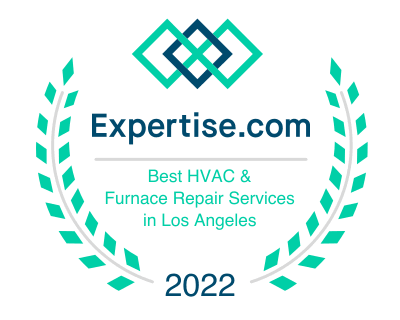Table of Contents
Introduction
Air quality is a top concern for many Southern California homeowners, especially with the region’s high pollen counts, dust, and occasional wildfire smoke. One of the best ways to improve indoor air quality and ensure the efficiency of your HVAC system is by using the right air filters. In this blog, we’ll explore six types of air filters that are commonly used in HVAC systems, and how each type helps create a cleaner, healthier living environment for your home.
HEPA Filters: The Gold Standard in Air Filtration
High-Efficiency Particulate Air (HEPA) filters are widely considered the best air filters for trapping fine particles like dust, pollen, pet dander, and even some bacteria and viruses. These filters are known for their ability to capture up to 99.97% of airborne particles as small as 0.3 microns.
How HEPA Filters Work
HEPA filters use a dense network of fibers to trap particles that pass through the filter. As air circulates through your HVAC system, contaminants like dust and pollen are captured, leaving only clean, filtered air to be distributed throughout your home.
Benefits
HEPA filters are ideal for those who suffer from allergies, asthma, or other respiratory conditions, as they are highly effective at improving indoor air quality. For Southern California residents, where air pollution and allergens can be problematic, HEPA filters are a popular choice.
UV Filters: Fighting Germs and Bacteria
UV filters use ultraviolet light to kill bacteria, viruses, and mold spores that pass through your HVAC system. While they are not typically used as the sole method of air filtration, UV filters are often combined with other types of filters to provide additional protection against harmful microorganisms.
How UV Filters Work
UV filters are installed inside the HVAC system, where they emit ultraviolet light that neutralizes airborne pathogens. This is particularly useful for preventing the spread of bacteria and mold, which can thrive in the moist environments inside air conditioners and ductwork.
Benefits
UV filters are beneficial for households concerned about indoor air quality, especially those with weakened immune systems or respiratory conditions. They help keep your HVAC system free from mold and bacteria, improving both air quality and system efficiency.
Electrostatic Filters: A Reusable, Eco-Friendly Option
Electrostatic air filters use static electricity to capture dust, pollen, and other airborne particles. These filters are reusable, which makes them an eco-friendly option compared to disposable filters.
How Electrostatic Filters Work
As air passes through an electrostatic filter, the filter generates a static charge that attracts airborne particles, trapping them on the surface of the filter. These filters are typically washable and can be reused multiple times before needing to be replaced.
Benefits
Electrostatic filters are an excellent option for those looking to reduce waste and save money on replacement filters. They are also effective at improving indoor air quality by capturing a range of airborne contaminants. However, they may not be as effective as HEPA filters at capturing very fine particles.
Pleated Filters: Balancing Efficiency and Cost
Pleated filters are among the most common types of air filters used in HVAC systems. These filters are made of cotton or polyester and are designed with pleats that increase the surface area, allowing them to capture more particles than flat filters.
How Pleated Filters Work
The pleats in these filters create a larger surface area for capturing airborne particles like dust, pollen, and pet dander. As air circulates through the HVAC system, contaminants are trapped in the pleats, preventing them from entering your home.
Benefits
Pleated filters offer a good balance between efficiency and affordability. They are effective at capturing a wide range of contaminants and can last longer than standard flat filters. For Southern California homeowners looking for an affordable yet efficient option, pleated filters are a solid choice.
Fiberglass Filters: Affordable and Basic
Fiberglass filters are the most basic and affordable type of air filter, but they offer limited filtration capabilities. These filters are made of layered fiberglass and are primarily used to protect HVAC systems from large particles that could damage the equipment.
How Fiberglass Filters Work
Fiberglass filters trap larger particles like dust and dirt, preventing them from clogging up the HVAC system. However, they are not as effective at capturing smaller particles like pollen or mold spores.
Benefits
Fiberglass filters are inexpensive and easy to replace, making them a popular choice for homeowners on a budget. However, they do not offer the same level of air purification as more advanced filters and may need to be replaced more frequently.
Washable Filters: A Long-Lasting Solution
Washable air filters are designed to be cleaned and reused multiple times, making them a cost-effective and environmentally friendly option. These filters are typically made of a durable material that can be washed and reinstalled in your HVAC system.
How Washable Filters Work
Washable filters trap dust and particles on their surface, and when they become clogged, they can be removed, washed, and reused. This helps to reduce waste and eliminate the need for frequent filter replacements.
Benefits
Washable filters are a long-lasting and eco-friendly solution for homeowners looking to reduce their carbon footprint. However, they may not be as effective as disposable filters in capturing fine particles, so regular cleaning is essential to maintain their efficiency.
Conclusion
Choosing the right air filter for your HVAC system is key to maintaining good indoor air quality and system performance. From HEPA filters to washable filters, each type offers unique benefits depending on your needs and budget. Southern California residents, in particular, can benefit from filters that combat allergens, dust, and outdoor pollutants, ensuring a healthier home environment.
Stay tuned for our next blog, where we will explore the benefits of ductless mini-split systems for Southern California homes.
Contact SoCal Climate Control Heating and Air Conditioning
For expert advice on choosing the right air filter for your HVAC system, contact SoCal Climate Control Heating and Air Conditioning today. Our technicians can help you select and install the best air filters to improve indoor air quality and system efficiency. Call us at (833) 202-0763 or visit our website to schedule your consultation. We proudly serve Southern California, including Los Angeles County and Ventura County.











